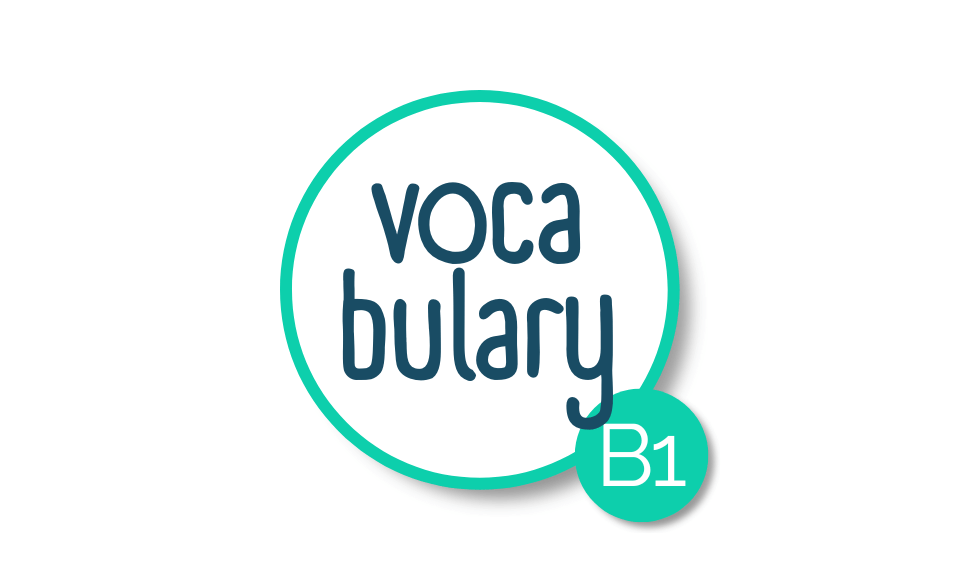
vocabulario B1# la familia
En esta lección sobre vocabulario básico vamos a ver la familia en inglés, que es esencial saberse bien porque casi todos hablamos normalmente de nuestra familia.
Vamos a aprender tanto la familia carnal como la familia política, que en inglés es tan fácil como añadir in-law detrás de la persona. ¡Vamos a verlo!
La lección esta organizada en diferentes pestañas
| help | Contiene los consejos de uso y las normas gramaticales que se aplican a esta lección, necesarias para poder usar este vocabulario correctamente. |
| words | Contiene todas las palabras de vocabulario de la lección, incluida su pronunciación. |
| reading | Contiene el texto para leer, que incluye todas las palabras que se recomiendan aprender en esta lección. |
| sentences | Son frases útiles que puede que tengas que usar en algún momento y te ayudarán a reforzar el uso correcto de este vocabulario. |
Lo normal en inglés es que los sustantivos sean neutros, es decir, que no haya ninguna diferencia entre masculino y femenino. Teacher, por ejemplo, significa tanto profesor como profesora.
Sin embargo, la familia es de los pocos sustantivos en inglés que tienen diferencia de género, es decir, que hay una palabra para el masculino y otra para el femenino. Por ejemplo, father es padre mientras que mother es madre.
Ahora bien, dentro de la familia en inglés, hay sustantivos plurales que son neutros y se usan para nombrar a ambos géneros. Ten en cuenta que en español usamos la forma masculina aunque nos estemos refiriendo a hombre y mujer.
| parents | padres |
| children | niños / as |
| grandparents | abuelos / as |
| grandchildren | nietos / as |
| siblings | hermanos / as |
Todas estas palabras designan tanto hombres como mujeres, sin especificar. Vamos a verlo con un ejemplo práctico.
Supongamos que tienes una hermana y alguien te pregunta en español ¿Tienes hermanos? Tu respuesta es Sí, una hermana.
Si traducimos esa frase al inglés y decimos Do you have any brothers? la respuesta es No, I don’t porque tienes una hermana, no un hermano.
Sin embargo, si nos preguntan Do you have any siblings? la respuesta es Yes, I have a sister.
Para hacer la familia política en inglés solo hay que añadir in-law, que significa por la ley, detrás de la persona según sería si fuera de tu familia carnal.
Es decir, tu cuñada es tu hermana por la ley (sister in-law), porque es la mujer de tu hermano o hermana y tu suegro es tu padre por la ley (father in-law) porque es el padre de tu marido o mujer.
immediate family |
|||
 |
parents | padres | |
 |
mother | madre | |
 |
mum | mamá | |
 |
mummy | mami | |
 |
father | padre | |
 |
dad | papá | |
 |
daddy | papi | |
 |
spouses | esposos | |
 |
husband | marido | |
 |
wife | mujer | |
 |
child | hijo / a | |
 |
children | hijos | |
 |
kid | hijo / a | |
 |
kids | hijos | |
 |
son | hijo | |
 |
daughter | hija | |
 |
siblings | hermanos | |
 |
brother | hermano | |
 |
sister | hermana | |
extended family |
|||
 |
grandparents | abuelos | |
 |
grandfather | abuelo | |
 |
grandpa | abuelo / yayo | |
 |
grandmother | abuela | |
 |
grandma | abuela / yaya | |
 |
grandchildren | nietos | |
 |
grandkids | nietos | |
 |
grandson | nieto | |
 |
granddaughter | nieta | |
 |
uncle | tío | |
 |
aunt | tía | |
 |
aunt and uncle | tíos | |
 |
nephew | sobrino | |
 |
niece | sobrina | |
 |
cousin | primo | |
 |
cousin | prima | |
the in-laws |
|||
 |
father in-law | suegro | |
 |
mother in-law | suegra | |
 |
brother in-law | cuñado | |
 |
sister in-law | cuñada | |
 |
son in-law | yerno | |
 |
daughter in-law | nuera | |
immediate family
Families can take any shape and most people can agree that a family is a group of people who love and respect each other. Another feature of a family can be “being there” when they need you.
Traditionally, families consist of two parents: a father and a mother. If they have children, those can be sons and daughters.
It is very common for little sons and daughters to call their parents dad and mum, and even for those not so little. Mummy and daddy are quite common, too. In America, mothers are called moms but in the United Kingdom they are called mums.
Parents can be married or not. When they are married, the man is called husband and the woman, wife. We can say spouses to refer to both of them at the same time or when we don’t want to identify the gender.
When we say child in English, we don’t know if it is a boy or a girl. The same happens with children, which is the plural of child. However, when we say son we know it is a boy and when we say daughter we know it is a girl.
Siblings are the best! You can always play with them when you are little, and they are always there when you grow up. If you say siblings, it means either brothers or sisters. It is very different to saying brothers, which is only boys, or sisters, which is only girls.
extended family
In English, the word “grand” is used to talk about your extended family.
Your grandparents are your parents’ parents. You can have grandparents on your mother’s side and on your father’s side.
Grandfather is the correct word if it’s a man and grandmother if it’s a woman. However, many people think this word is too formal and they prefer saying grandpa and grandma.
Using the same “grand” prefix, we can talk of grandchildren, grandson, granddaughter and even grandchild, if we don’t want to say the gender.
If you are lucky enough as to have grandparents, don’t forget to spend time with them. They are old but wise, and they all love their grandchildren in a very special way.
Your parents’ brothers and sisters are also your family. Your parent’s brother is your uncle and your parent’s sister is your aunt. There is no common word for naming both at the same time so you have to say “my aunt and my uncle”.
Your sibling’s son is your nephew. If it is a girl, she’s your niece. Your children and your sibling’s children are cousins.
the in-laws
The in-laws are the new family you gain when you get married. Also, if you are in a committed relationship, some people still call them the in-laws.
Some people are not very lucky, and their family in-law isn’t very nice. However, for other people it means that now you have a bigger family.
Your father in-law is your spouse’s father and your mother in-law is their mother. Easy, right?
If your wife or husband have any siblings, they become your sister in-law if it’s a woman and your brother in-law if it is a man.
From the parents’ in-law perspective, if you are married to their children, you are their son in-law if you are a man or their daughter in-law if you are a woman.
| Do you have any brothers or sisters? | ¿Tienes hermanos o hermanas? |
| Do you have any siblings? | ¿Tienes hermanos? |
| What is your brother’s name? | ¿Cómo se llama tu hermano? |
| What is your sister’s name? | ¿Cómo se llama tu hermana? |
| What is your mother’s name? | ¿Cómo se llama tu madre? |
| What is your father’s name? | ¿Cómo se llama tu padre? |
| Do you live with your parents? | ¿Vives con tus padres? |
| Do you have any children? | ¿Tienes hijos? |
| Would you like to have children? | ¿Te gustaría tener hijos? |
| Do you get along with your father in-law? | ¿Te llevas bien con tu suegro? |
| Do you get along with your mother in-law? | ¿Te llevas bien con tu suegra? |
- help
-
Lo normal en inglés es que los sustantivos sean neutros, es decir, que no haya ninguna diferencia entre masculino y femenino. Teacher, por ejemplo, significa tanto profesor como profesora.
Sin embargo, la familia es de los pocos sustantivos en inglés que tienen diferencia de género, es decir, que hay una palabra para el masculino y otra para el femenino. Por ejemplo, father es padre mientras que mother es madre.
Ahora bien, dentro de la familia en inglés, hay sustantivos plurales que son neutros y se usan para nombrar a ambos géneros. Ten en cuenta que en español usamos la forma masculina aunque nos estemos refiriendo a hombre y mujer.
parents padres children niños / as grandparents abuelos / as grandchildren nietos / as siblings hermanos / as Todas estas palabras designan tanto hombres como mujeres, sin especificar. Vamos a verlo con un ejemplo práctico.
Supongamos que tienes una hermana y alguien te pregunta en español ¿Tienes hermanos? Tu respuesta es Sí, una hermana.
Si traducimos esa frase al inglés y decimos Do you have any brothers? la respuesta es No, I don’t porque tienes una hermana, no un hermano.
Sin embargo, si nos preguntan Do you have any siblings? la respuesta es Yes, I have a sister.
Para hacer la familia política en inglés solo hay que añadir in-law, que significa por la ley, detrás de la persona según sería si fuera de tu familia carnal.
Es decir, tu cuñada es tu hermana por la ley (sister in-law), porque es la mujer de tu hermano o hermana y tu suegro es tu padre por la ley (father in-law) porque es el padre de tu marido o mujer.
- words
-
immediate family

parents padres 
mother madre 
mum mamá 
mummy mami 
father padre 
dad papá 
daddy papi 
spouses esposos 
husband marido 
wife mujer 
child hijo / a 
children hijos 
kid hijo / a 
kids hijos 
son hijo 
daughter hija 
siblings hermanos 
brother hermano 
sister hermana extended family

grandparents abuelos 
grandfather abuelo 
grandpa abuelo / yayo 
grandmother abuela 
grandma abuela / yaya 
grandchildren nietos 
grandkids nietos 
grandson nieto 
granddaughter nieta 
uncle tío 
aunt tía 
aunt and uncle tíos 
nephew sobrino 
niece sobrina 
cousin primo 
cousin prima the in-laws

father in-law suegro 
mother in-law suegra 
brother in-law cuñado 
sister in-law cuñada 
son in-law yerno 
daughter in-law nuera - reading
-
immediate family
Families can take any shape and most people can agree that a family is a group of people who love and respect each other. Another feature of a family can be “being there” when they need you.
Traditionally, families consist of two parents: a father and a mother. If they have children, those can be sons and daughters.
It is very common for little sons and daughters to call their parents dad and mum, and even for those not so little. Mummy and daddy are quite common, too. In America, mothers are called moms but in the United Kingdom they are called mums.
Parents can be married or not. When they are married, the man is called husband and the woman, wife. We can say spouses to refer to both of them at the same time or when we don’t want to identify the gender.
When we say child in English, we don’t know if it is a boy or a girl. The same happens with children, which is the plural of child. However, when we say son we know it is a boy and when we say daughter we know it is a girl.
Siblings are the best! You can always play with them when you are little, and they are always there when you grow up. If you say siblings, it means either brothers or sisters. It is very different to saying brothers, which is only boys, or sisters, which is only girls.
extended family
In English, the word “grand” is used to talk about your extended family.
Your grandparents are your parents’ parents. You can have grandparents on your mother’s side and on your father’s side.
Grandfather is the correct word if it’s a man and grandmother if it’s a woman. However, many people think this word is too formal and they prefer saying grandpa and grandma.
Using the same “grand” prefix, we can talk of grandchildren, grandson, granddaughter and even grandchild, if we don’t want to say the gender.
If you are lucky enough as to have grandparents, don’t forget to spend time with them. They are old but wise, and they all love their grandchildren in a very special way.
Your parents’ brothers and sisters are also your family. Your parent’s brother is your uncle and your parent’s sister is your aunt. There is no common word for naming both at the same time so you have to say “my aunt and my uncle”.
Your sibling’s son is your nephew. If it is a girl, she’s your niece. Your children and your sibling’s children are cousins.
the in-laws
The in-laws are the new family you gain when you get married. Also, if you are in a committed relationship, some people still call them the in-laws.
Some people are not very lucky, and their family in-law isn’t very nice. However, for other people it means that now you have a bigger family.
Your father in-law is your spouse’s father and your mother in-law is their mother. Easy, right?
If your wife or husband have any siblings, they become your sister in-law if it’s a woman and your brother in-law if it is a man.
From the parents’ in-law perspective, if you are married to their children, you are their son in-law if you are a man or their daughter in-law if you are a woman.
- sentences
-
Do you have any brothers or sisters? ¿Tienes hermanos o hermanas? Do you have any siblings? ¿Tienes hermanos? What is your brother’s name? ¿Cómo se llama tu hermano? What is your sister’s name? ¿Cómo se llama tu hermana? What is your mother’s name? ¿Cómo se llama tu madre? What is your father’s name? ¿Cómo se llama tu padre? Do you live with your parents? ¿Vives con tus padres? Do you have any children? ¿Tienes hijos? Would you like to have children? ¿Te gustaría tener hijos? Do you get along with your father in-law? ¿Te llevas bien con tu suegro? Do you get along with your mother in-law? ¿Te llevas bien con tu suegra?






Responses